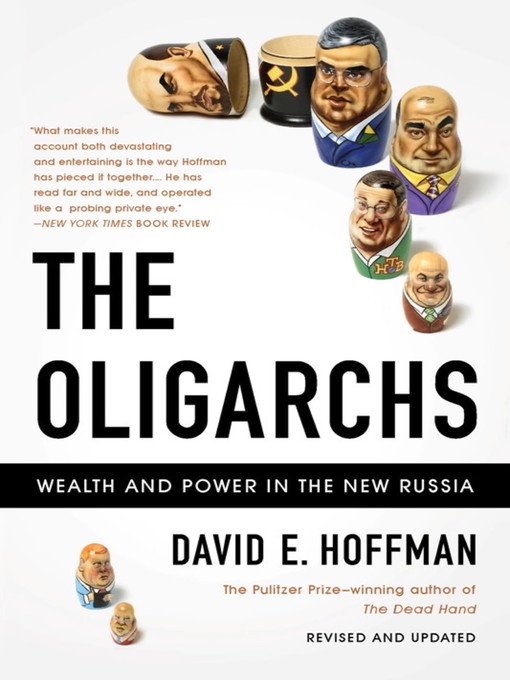-
Creators
-
Publisher
-
Release date
September 13, 2011 -
Formats
-
Kindle Book
-
OverDrive Read
- ISBN: 9781610391115
- File size: 2031 KB
-
EPUB ebook
- ISBN: 9781610391115
- File size: 2031 KB
-
-
Languages
- English
-
Reviews
-
Library Journal
April 1, 2002
There seems to be little question that the handful of men who became wealthy and powerful after the demise of the Soviet Union were greedy to the point of being criminal. Matthew Brzezinski's Casino Moscow, Chystia Freeland's Sale of the Century: Russia's Wild Ride from Communism to Capitalism, and Paul Klebnikov's Godfather of the Kremlin: Boris Berezovsky and the Looting of Russia do a good job of documenting the chicanery. What shaped the character of the so-called oligarchs? How did the decaying Soviet system influence such a diverse group of men? Hoffman, former Moscow bureau chief for the Washington Post, digs into the background of the six main oligarchs e.g., Boris Berezovsky of the All Russian Automobile Alliance (AVVA), one of Vladimir Putin's main backers, and Anatoly Chubias, former chair of Gazprom and founder of NTV (Novoe Televidenie, or "New Television") identifying the events that made each of them so predatory and so influential. Several characteristics are common to each. They all lived restless lives. They began to take advantage of the decaying system by starting capitalist ventures called "co-ops." They were experts at building social capital among the powerful government leaders. And, as Hoffman claims, most significantly, each man had "an ability to change." The book is not a prescriptive work but a fine descriptive volume that illuminates current Russian politics and finance. Recommended for public and academic libraries. Harry Willems, Southeast Kansas Lib. Syst., IolaCopyright 2002 Library Journal, LLC Used with permission.
-
Formats
- Kindle Book
- OverDrive Read
- EPUB ebook
Languages
- English
Loading
Why is availability limited?
×Availability can change throughout the month based on the library's budget. You can still place a hold on the title, and your hold will be automatically filled as soon as the title is available again.
The Kindle Book format for this title is not supported on:
×Read-along ebook
×The OverDrive Read format of this ebook has professional narration that plays while you read in your browser. Learn more here.

